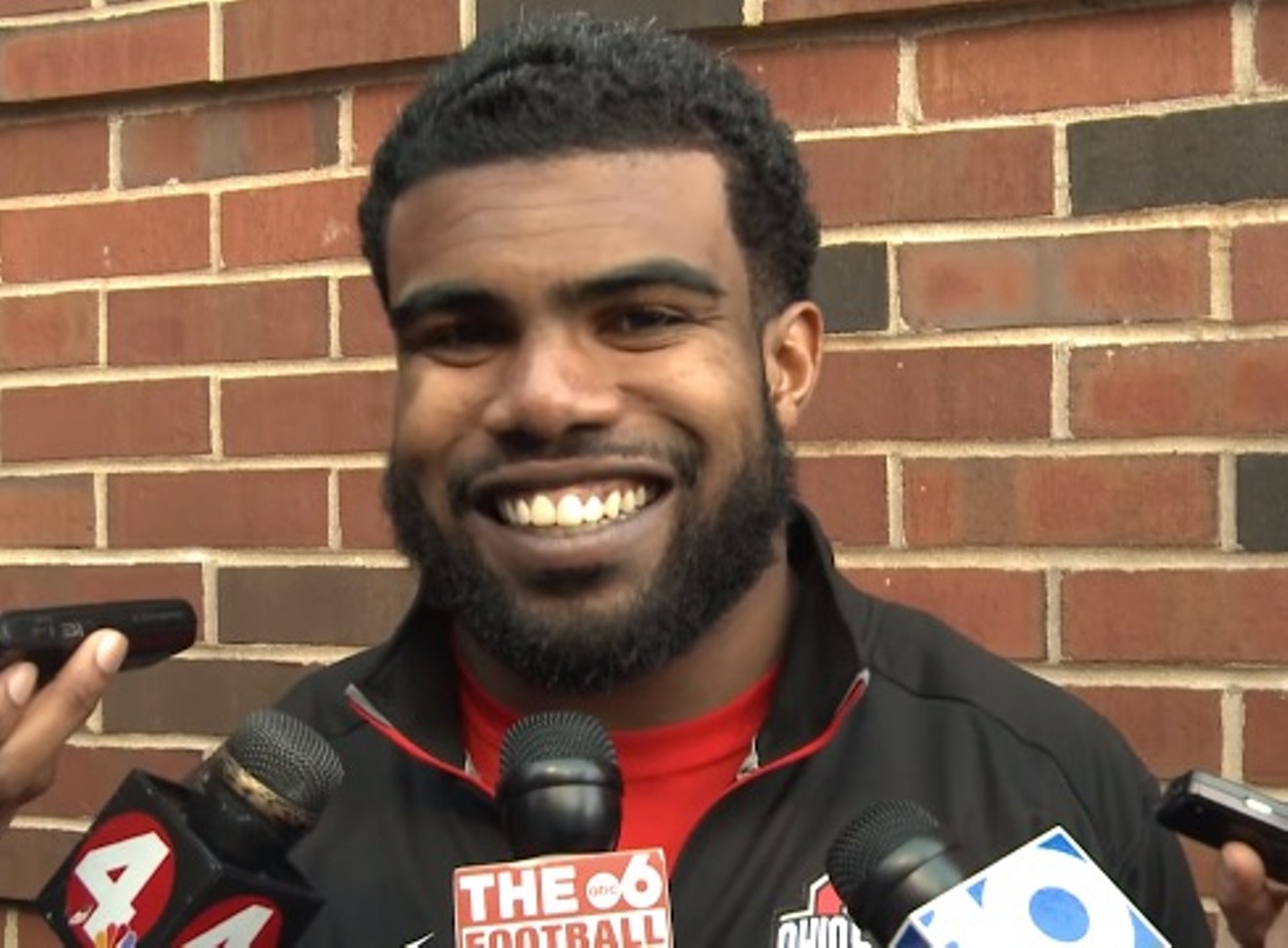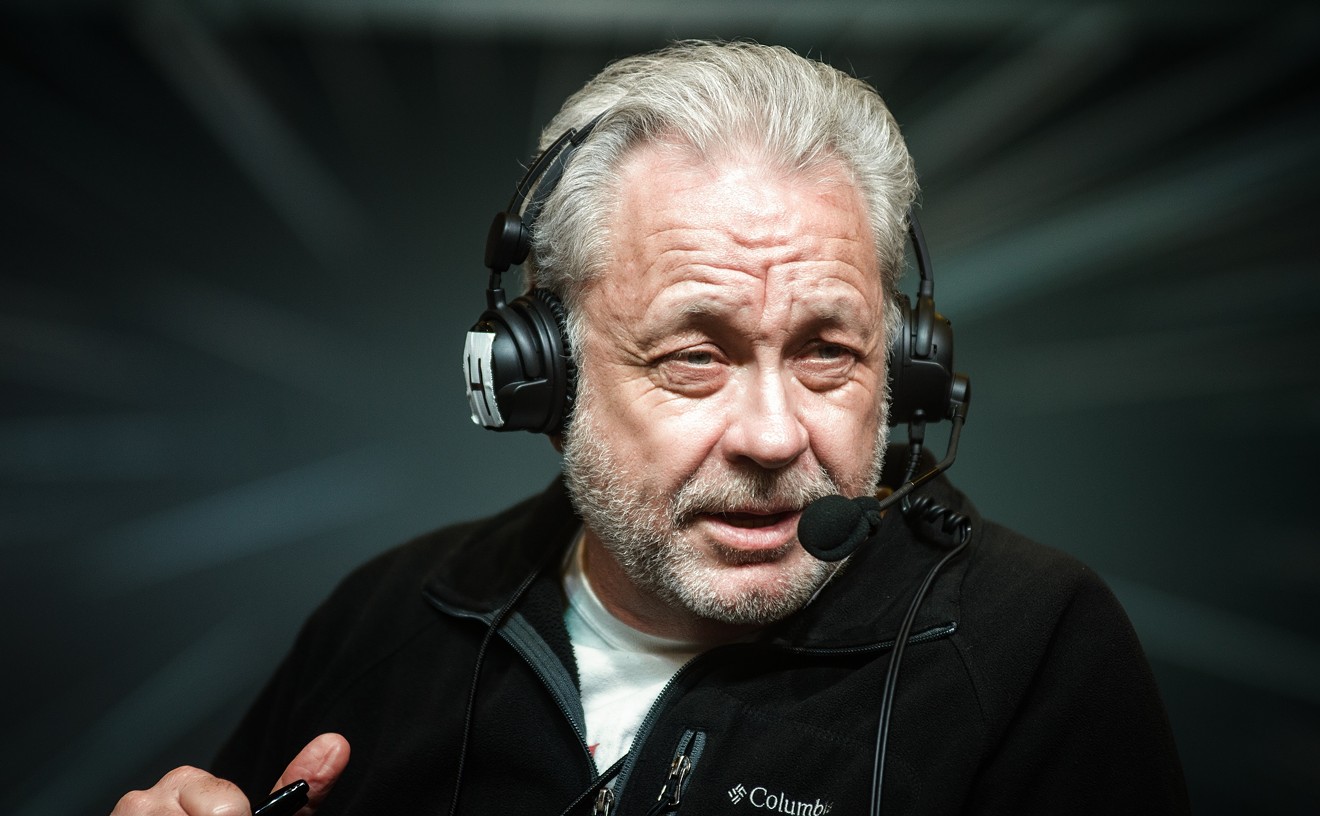Dallas Cowboys running back Ezekiel Elliott will not begin serving his six-game suspension until the resolution of his federal lawsuit, which could last well into 2018. U.S. District Judge Amos Mazzant III issued a preliminary injunction Friday afternoon, essentially agreeing with Elliott and the NFL Players Association that Elliott has a strong likelihood of success in his lawsuit against the league.
Elliott's suit claims that the process by which NFL Commissioner Roger Goodell determined and handed out the suspension, which stemmed from domestic violence allegations made by Elliott's ex-girlfriend in 2016, was fundamentally unfair. Elliott contends that Goodell ignored key evidence and that witnesses and evidence were not made available to Elliott's defense team during the appeals process. The league has the right to appeal Mazzant's injunction.
Procedural missteps by the NFL throughout the investigative and appeals process led Mazzant to question its fairness repeatedly during a hearing in Sherman on Tuesday, according to reports from the courtroom. On Friday, the judge confirmed those misgivings, ruling that Elliott did "not receive a fundamentally fair hearing" from the league.
The result is that the league's leading rusher will be allowed to take the field all season for the Cowboys.
In July 2016, Tiffany Thompson called Columbus, Ohio, police after Elliott refused to let her into an after-party after a night of clubbing on Elliott's birthday. She told police that Elliott had assaulted her several times during the previous week, and police took photos of bruises on her body. Police did not arrest Elliott, citing conflicting testimony from witnesses at the scene. Several witnesses heard Thompson scream that she would "ruin Elliott's life" and disputed her claim that Elliott injured her when her jerked her out of a car.
Evidence released by the Columbus City Attorney's Office after it decided not to charge Elliott — again, prosecutors cited conflicting evidence and witness accounts — revealed that Thompson asked a friend in the parking lot where she called police to lie about the incident in which she said she was dragged out of the car.
During the NFL's investigation, the league disregarded the after-party confrontation, finding that Thompson lied about it, and focused on three of the alleged attacks that happened in the previous week.
Kia Roberts, a former prosecutor selected to lead the league's investigation along with Lisa Friel, interviewed Thompson six times. Eventually, in large because of Thompson's conflicting statements, Roberts concluded that Elliott should not be suspended as a result of the allegations. Roberts' recommendation was not included in the final report of the league's investigation, nor was she allowed to brief Goodell on her conclusions.
With help from Friel and a panel of four advisers, including former New Jersey Attorney General Peter Harvey, Goodell decided to suspend Elliott for six games, the recommended penalty for a player's first domestic violence suspension under the league's collective bargaining agreement. In a letter to Elliott, the league explained that his punishment was based on photographic evidence provided by Thompson, which the league said proved the bruises photographed by Columbus police could only have been caused by Elliott.
In interviews with league investigators and during his league appeal of his suspension, Elliott said that he didn't know how Thompson was bruised, noting that the two often engaged in rough sex and that Thompson often came home bruised from her job as a bottle service waitress. The night before she called the police, Thompson also got in a fistfight with a woman she believed was sleeping with Elliott.
After his suspension, Elliott followed the process required by the collective bargaining agreement and filed an appeal with the league. Harold Henderson, the arbiter chosen by Goodell, declined to ask Thompson to testify at the appeal hearing, refused to give Elliott notes from several of the league's interviews with Thompson and refused to have Goodell testify. The NFL told Elliott's defense team that one of the doctors the league asked to evaluate Thompson's injuries was not available to testify because of a medical procedure. A private investigator hired by the defense found the doctor at his home and watched as remained there the entire day on which he was said to be at the hospital.
[
{
"name": "Air - MediumRectangle - Inline Content - Mobile Display Size",
"component": "18855504",
"insertPoint": "2",
"requiredCountToDisplay": "2"
},{
"name": "Editor Picks",
"component": "17105533",
"insertPoint": "4",
"requiredCountToDisplay": "1"
},{
"name": "Inline Links",
"component": "18349797",
"insertPoint": "8th",
"startingPoint": 8,
"requiredCountToDisplay": "7",
"maxInsertions": 25
},{
"name": "Air - MediumRectangle - Combo - Inline Content",
"component": "17105532",
"insertPoint": "8th",
"startingPoint": 8,
"requiredCountToDisplay": "7",
"maxInsertions": 25
},{
"name": "Inline Links",
"component": "18349797",
"insertPoint": "8th",
"startingPoint": 12,
"requiredCountToDisplay": "11",
"maxInsertions": 25
},{
"name": "Air - Leaderboard Tower - Combo - Inline Content",
"component": "17105535",
"insertPoint": "8th",
"startingPoint": 12,
"requiredCountToDisplay": "11",
"maxInsertions": 25
}
]












